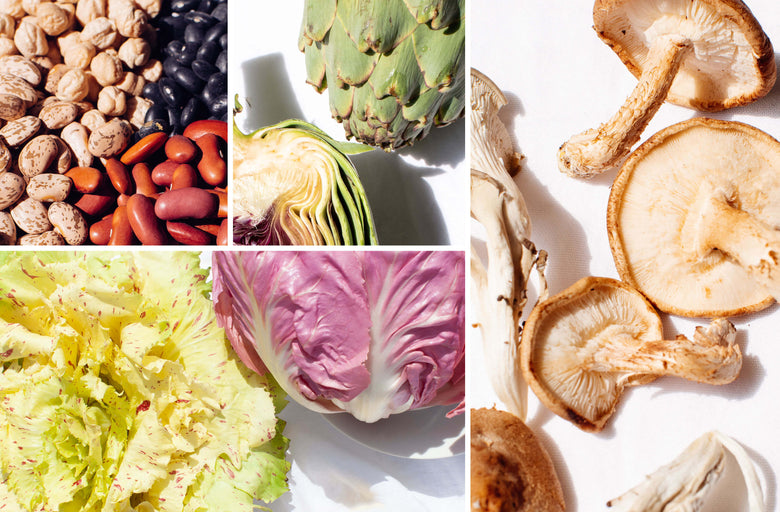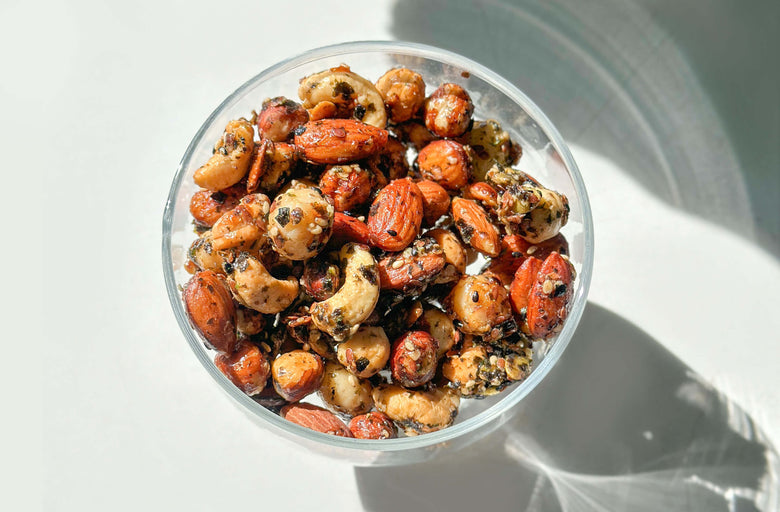Picture the gut: a thriving metropolis of bacteria, cells, acid, and a universe of organisms. It’s here where your food is broken down into the energy that will inform thousands of enzymatic reactions in a single moment. Reason enough, then, to treat your GI tract as a sanctuary when it comes to what you let in.
Now, picture a morning rush of caffeine, a smattering of sweets, all-day grazing, and the occasional late-night glass of wine.
In order to strike the feel-good balance of enjoying the simple pleasures and supporting ultimate vitality, adopt some easy, daily wellness rituals as preventative medicine. Some simple options include a dose of greens in your water bottle, a handful of spinach in an abundant fruit smoothie, and one critical ingredient that acts to “heal and seal” the microbiome: L-glutamine.
Why is L-glutamine such an important ally in gut health? It’s a nutrient that supports the intestinal walls, promoting the growth of enterocytes, or the cells that line the GI tract. Lack of support for proper gut health can lead to more than just discomfort or unwanted bloat—there’s potential for a more serious compromised system (i.e. leaky gut).
The buzzy wellness phrase refers to the micro-perforation in your GI tract, caused by everything from stress, environmental strain, too many processed foods, and an imbalance in microbiota. If the gut is a tightly woven raffia tote, think of the onslaught of toxins (through pathogens, GMOs, negativity, stress, pollution) as the wear and tear that stretches the epithelial lining into a fisherman net bag. Not ideal for nutrient absorption, keeping inflammation at bay, and beating bloat.
L-Glutamine’s Powers
Fans The Flames
Here’s where the superpowers come in: as it rebuilds the gut, l-glutamine also soothes the entire GI tract, making it an excellent source for de-flaming the body. By supporting immune cells, this amino acid fights chronic inflammation and digestive disorders. There have even been studies that show its benefit to help with stress-induced IBS.
Supports Hormones
The brain-gut axis is a fascinating one; l-glutamine serves both. While it supports digestion, it also works in conjunction with particular neurotransmitters and hormones—namely appetite and hunger hormones leptin and ghrelin— by reducing Firmicutes. This particular strain of bacteria lives in the intestines and loves sugar and refined carbohydrates, wreaking havoc on our body’s intuitive sense of hunger and satiation.
Stronger/Better/Faster Recovery
Not only is it an aid to proper digestion and absorption, but it’s also a staple in the fitness realm as a recovery tool. Glutamine was adopted into the bodybuilding world in the early ‘90s as a way for athletes to maintain lean muscle mass. It replenishes lost glycogen after strenuous physical exercise—incorporating it into your regimen can help you get back to your favorite way to move, faster and more effectively.
Going to The Source
As an amino acid and building block of protein, stores of glutamine are found in plant-rich, protein sources:
- Lentils
- Beans
- Chickpeas
- Dark leafy greens
- Beets
- Cabbage
- Broccoli
While the amounts found in whole food sources are efficient for muscle recovery, supplementing is a great idea if gut health and de-bloating is your priority. Within the Metabolism Super Powder, there is 1000 mg of l-glutamine, nutritionally designed to rebuild a thriving gut.
Try whipping up a simple Metabolism Super Powder smoothie every morning in order to kick off the day with some “health insurance” —making space for kale and martinis, quinoa and French fries. In this way, there's room to celebrate and play without feeling deprived.
Chocolate-Cherry Metabolism Super Smoothie
Ingredients:
- 1 packet Metabolism Super Powder
- 1/2 cup unsweetened nut milk
- 1/2 cup + a few extra frozen cherries
- 1/2 a medium banana, frozen
Directions:
1. Blend on high. Enjoy!
Explore More on Digestion, Metabolism, and the Microbiome:






